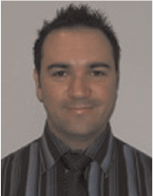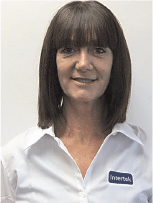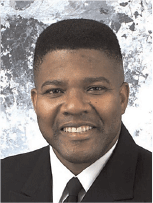Case study: maximising return on health, safety, environment, and quality (HSE&Q) investments
Christopher Homsey A , Jane Austin B and Christopher Butler CA Farstad Shipping (Indian Pacific) Pty Ltd.
B Intertek Consulting and Training.
C Intertek Industry & Assurance.
The APPEA Journal 54(2) 553-553 https://doi.org/10.1071/AJ13126
Published: 2014
Abstract
Farstad Shipping operates a fleet of large anchor handling and platform supply vessels globally. Priding itself on its motto Better By Far, Farstad Shipping’s vision of zero harm faced key safety challenges, including:
leadership/communications;
manual task-related injuries;
fly in/fly out fatigue; mental health issues relating to stress, depression, etc.;
an ageing workforce; and,
changing/challenging client requirements.
These challenges created a high level of indecision and frustration when trying to determine where best to focus time and money with HSE&Q programs to effectively impact operational productivity and safety performance. Beginning in 2007, Farstad Shipping partnered with Intertek Consulting & Training and implemented a framework designed to pinpoint areas of greatest concern. This approach uses research from OECD indicating best practice. Using this approach enabled Farstad to gather objective data on specific behaviours and to formulate targeted action plans that addressed the people, culture, processes, delivery and sustainability challenges identified above. The framework was applied at sea on more than 25 Farstad vessels via onboard coaching, at onshore workshops, and at the Offshore Simulation Centre based in Western Australia. Subsequently, some key achievements included: three-fold reduction in injury frequency; reduction of total recordable case frequency from 14.0 to >5.0; 50% reduction in workcover claims; and zero lost time injuries since September 2012. The methodology used by Farstad, which can be applied to organisations’ approaches to hiring, training, coaching, process design and leadership development, is examined in detail and its application to Farstad’s challenges explored.

Chris heads up the HSE Department for Farstad Shipping’s Australasian business units (Indian Pacific and Singapore). Chris joined Farstad in 2006, specialising in the optimisation of work processes, process safety, hazard management and implementation of best practice. Before his engagement with Farstad Shipping, Chris’s experience included production management in the chemical/manufacturing industry with Cognis Australia (now BASF) with achievements including an annual production throughput record, zero injuries sustained by the managed workforce at each managed site. Chris holds a Bachelor of Science from the University of Melbourne. |

Dr Jane Austin is a registered psychologist with over 18 years’ experience working with individuals and groups in both clinical neuropsychology and organizational psychology, and has work nationally and internationally with multinational organizations largely in the mining and energy/utilities industries. Programs and areas of specialty include leadership development, coaching, team development, culture change, psychological assessment for development and recruiting, contractor engagement and alignment, and the enhancement of individual and organizational approaches to health and safety. Jane has a PhD in Clinical Neuropsychology from University of Queensland and a Bachelor of Social Science from Queensland University of Technology. She is presently working at Intertek Consulting and Training, Australia. |

Chris is the principal consultant for safe operations and performance. In this role, Chris provides services for the strategic implementation of enterprise-wide approaches to enhancing safety, operations and business resilience. Born in New York City, NY, Chris has worked 27 years in senior management and leadership positions in high reliability organisations in high risk environments, such as an officer in the US Navy, on-board nuclear power submarines and aircraft carriers, before moving to Perth in 2004. While in Perth, Chris has held consultancy roles at Tenix, Telvent, Siemens, the Vulnerability Assessment Group, and Security Infrastructure Solutions, before joining Intertek in January 2012. Chris has a master’s of science in geophysics from Naval Post Graduate School, Monterey California, and a bachelor of science in systems engineering from the US Naval Academy in Annapolis Maryland. |
References
Organisation for Economic Co-Operation and Development, 2003—Guiding Principles For Chemical Accident Prevention, Preparedness and Response. Second edition. France: OECD Publications Service.Organisation for Economic Co-Operation and Development, 2008—Guidance on Developing Safety Performance Indicators for Industry. Second edition. France: OECD Publications Service.
Organisation for Economic Co-Operation and Development, 2013—25 Years of Chemical Accident Prevention at OECD – History and Outlook. France: OECD Publications Service.


